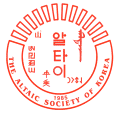KILE, A. S. (2011). On the Classification of Ritual Terminology in the Nanai Language. Altai Hakpo 21: 35-50. The Altaic Society of Korea.
The Khabarovsky and the Primorsky krai and the Sakhalinskaya oblast of the Russian Federation are home to the Nanai low-number indigenous people (totaling 12,160 in 2002) whose language is assigned to the southern Manchu-Tungus branch of the Altaic family of languages. The scholars study the Nanai ceremonial and religious concepts, their perception of the world and philosophy of life related to the ethnic vocabulary and special terminology. The author attempts at classifying the ritual terminology of baby delivery, wedding, and funeral rites, presents academic interpretations of individual terms, briefly explains their lexical meaning, and ways of forming the Nanai ritual word stock. Certain terms are used in spoken Nanai with no reference to a specific rite but are still related to the latter. Words in general use at times acquire a general figurative and symbolic meaning as ritual terms. The classification presents 4 groups of ritual terms: Ritual terms proper (in performing a specific rite); Ritual terms proper (with their lexical meaning unchanged, in several rites); Ritual terms in spoken speech (with no reference to a specific rite); Words and word combinations in general use (which have acquired a figurative and symbolic meaning and are used as ritual terms). The Nanai ritual terminology with regard to changes in social life is an invaluable source for studies of spiritual and material culture of the ethnos, its ethnogeny, historical development and vocabulary (etymology, phonetics, word- and form-formation), etc. The ritual terminology in the Nanai vocabulary is still to become the subject-matter of in-depth study.
Keywords: Nanai, Manchu-Tungus, Ritual terms, classification, wedding, funeral, Shaman, taboo, ceremonial and religious concepts

